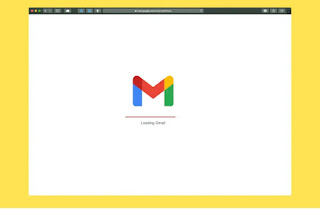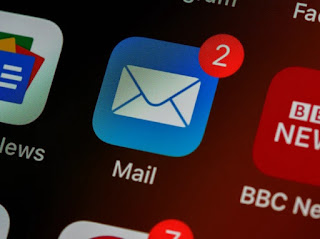What is email marketing?
Email is nothing but a message that you send to the other party over the internet. When you send a message commercially to either an individual or a group of people, it is called email marketing.
The purpose of sending emails can be different for different people.Some use email marketing to generate leads, solicit business, build trust and loyalty or increase brand awareness.Companies re-target their audience with email marketing.
How does email marketing benefit a business?
Brand Awareness If you are a small business or a start-up, then one of the most important things you need is for people to know that your brand exists.
In short, you need brand awareness. By constantly reaching out to your prospective customers, you can make your brand more visible to the target audience.
You can also use email marketing to share details about your multiple products and services with them. Lead generation Whether a small business or big we, are working to generate leads and convert them into paying customers.
Adopting an email marketing strategy can help you leverage potential leads out there. If you are a freelancer, you can use email marketing to build brand awareness and generate leads for your services. You can use social reach networks which can amplify your reach.
What are the steps of email marketing?
Before answering that question, I would like to ask you a question. What is the purpose of your email marketing?
Why do you want to do it? What is your objective behind your email marketing? Hence, the first step is to decide on a goal.
Ask yourself a question. Do you want to send emails to drive traffic to your website? Do you want to generate online sales?Or share information like a blog to your subscribers? Or whether you are seeking donations for your nonprofit organisation.
The next step is to choose the platform you want to use to send out emails. Once you have identified your goal of email marketing, you can choose from a wide range of email marketing platforms available today.
I will share with you more information about those tools in the next few minutes. The third step is to build an email list. In short, gather the emails of people to whom you want to send your emails. How do you do it? For example, you could buy off a list of contacts or get them organically by providing value in exchange for the email address.
I strictly advise you against buying any email list because it will not serve any purpose to you. These people might mark your emails as spam or not engage with them. Worst come, they might not even be the right target audience for your products and services.
How do you build an email list from scratch:
Look at your existing email list if you have one. Check your email accounts for all the relevant prospective customer base. Another way could be when people fill up their newsletter submission form on your websites or social media handles.
Lastly, if your prospective customers have met you in person, exchanged cards and agreed to receive emails you, can add them to the list.
Segment your email list:
Now you have received a bunch of email addresses who have agreed to receive your mail. However, these people differ from each other in terms of their geography or location.
So, segmenting these email becomes very important. For example, you are selling a product specifically for people in Mumbai. You do not want to send information about this product to people who live in other cities because it is not relevant to them.
Take note of the people who engage and those who don't. If you constantly send emails to the people who don't engage with you, you might have a high email rejection rate. Also known as bounce rate.
What is Bounce Rate:
There are two types of bounces:
A hard bounce is when you send an email to an address that does not exist, is fake, or their server does not accept emails from some domains like Gmail. On the other hand, a soft bounce is when your email gets rejected for temporary reasons.
For example, the recipient of the email cannot receive them because their inbox is full. In such cases, your server keeps trying to send emails to them in a gap of few hours.
I advise you to remove these emails altogether. You need to create an email campaign and craft your first email.
Luckily with all the email marketing platforms in the market today,you do not have to create emails from scratch.There are readymade email templates available that you can fill and send in a few minutes.
Autoresponder:
Autoresponder is another term for marketing automation. They help you to send responses automatically to the customers when they take a specific action.In short, these email responses activate with triggers. For example, as soon as your prospective customer fills up the order form, your platform sends a thank you for your order email.
These autoresponders help build trust and credibility for a brand.You can also use auto responders to send invoices and confirmation emails. Set up email analytics Sending emails out is not enough.It is crucial to track each email campaign that you send to your customers.
It allows you to refine your email marketing strategy according to your results.Some notable metrics that you should check for are the unique open rate, the number of clicks, bounce rate and, the Unsubscribe rate.You should aim for higher unique opens and click rates.It shows that your audience engages with your content.
Email marketing tools:
Over the years, there have been many new marketing trends that came and disappeared. However, nothing beats good old email marketing. According to research, at least 87% of B2B marketers prefer using email marketing to reach their clients.
77% of B2C customers are reached out and nurtured by these marketers.Using the right email marketing provider can boost your chances of success. It can help you achieve your goals faster. Let us look at some of the email marketing providers you should use for your email marketing strategy.
The first one is Hub-Spot - Hub-Spot has a free email marketing tool for small businesses specifically. You can use their ready to use templates and send just about any email campaign. Use their drag and drop email builder to compose appealing emails that can help your engagement rate.
They also provide you with a free CRM that integrates your email marketing strategy and helps create lists. It helps you in tracking your email performance over time. Mail Chimp is one of the top leaders in email marketing. You must have already heard about it.
Their free plan gives you access to basic email marketing features that you can use to create and schedule emails. Use audience insights and optimise your emails for future campaigns. There is something called the content manager feature where you can store your files and all of the email marketing literature for future reference.
Mail chimp allows you to take care of a buyer's journey and send relevant emails at each stage of their journey. For example, when someone places an order on your website, they immediately get confirmation emails. Similarly, when someone abandons their cart on your website, they get follow-up emails and reminders.
Get Response In their own words, Get Response is the world's easiest email marketing platform. If you are a newbie or someone who does not have a good knack for email marketing, you should start with Get Response.
They have been in the field for 20 years.They provide email marketing in at least 27 different languages. The platform claims to have an email open rate success of 95% plus. Active Campaign Another good email marketing platform for small and medium-sized businesses is Active Campaign.
They have over 150 thousand customers worldwide and a dedicated support team that can help you succeed in email marketing.Start with their free trial.Understand their drag and drop builder, email marketing templates and measure your performance. You can then choose if you want to go ahead with this tool or not.
Which is best email marketing tool?
There is no best email marketing tool. Everything depends on what you are comfortable with, what you are goals are and why you need email marketing in the first place.
Marketing Automation:
If you've been following so far, you must have heard me use the word marketing automation. So,what do you mean by marketing automation? Imagine just how many transactions, processes and tasks small, medium or big organisation have.
Marketing automation is a web-based service so you can track the results of your email marketing efforts. Marketing automation helps in nurturing leads.Automation guides your subscribers as they enter into a lead funnel until they reach your online store to buy products and services.
What are the ten rules of email etiquette? First of all, make sure that you are using a great visually appealing template. Make sure to send a great impression of your brand to the recipient.
Next, make sure that there are no errors. Use third-party spell-check applications like Grammarly to proofread your emails before you send them out to your recipients. Next, send emails to only those people who have expressly agreed to receive your emails.
Sending emails to the recipients without their consent leads to a higher bounce rate. It might affect your overall future email deliveries from that email address. Make sure that every email that you send has a clear call to action.
Sending emails without a call to action is a complete waste of time and efforts. Do not forget to include an unsubscribe button that is easily visible on your emails that go out. Ensure that your recipients can unsubscribe to your emails with one click rather than a loop of processes.
Take care of the subject line and do not include any words, like Free, Reminder, Money. Email servers worldwide are programmed to consider these words as spam. Do not overuse characters like exclamation marks throughout your emails.
Email marketing strategy:
Email marketing strategy can help you get started if you are a new business or a freelancer managing your clients. Start by building an email list. Make sure that you add a signup form on relevant pages of your website and share the same on your social media platforms.
If you already have a set of subscribers and wish to add more people to that list, you can do that by creating promotions, discounts, giveaways. It is a way to you ask your audience to buy a particular product or service that you are selling immediately.
Do I need a website for email marketing?
No, you do not need a website to use email marketing. Use your social media networks and engage with your customers. Engage with your subscribers with valuable newsletters.
Ensure you give them a place to go to after they have read your newsletter. For example, you can take them to your LinkedIn page Or your Pinterest or Instagram page where they can get more information about your products or services.
Can you make money from email marketing?
Yes, you can make money from email marketing. For every $1 spent on email marketing, there is an ROI of at least $38 per popular email marketing platforms. You can sell your products or services, online courses, ebooks, workbooks, sell subscription plans.
You can also sell products and services of other companies. Also known as affiliate marketing. Create campaigns around cart abandonment so that you can bring those customers back to your store. Sending these reminder emails at least two to three times will increase conversion.
How much does it cost to send bulk emails?
Usually, people ask this question because they want to send cold emails rather than qualified warm emails to their audience or supposed leads. Email marketing platforms are strict about this policy.
They may even suspend your account. If you want to send cold emails then go to GMASS - a product of Gmail. Coming back to the question - how much does it cost to send qualified emails in bulk? You can send up to 2,000 emails in a month on Hub-Spot.
Beyond that, you have to subscribe to their starter package that costs $45 per month. Share your thoughts on what email marketing tools have you used so far. What do you think is the best tool out there.




















إرسال تعليق